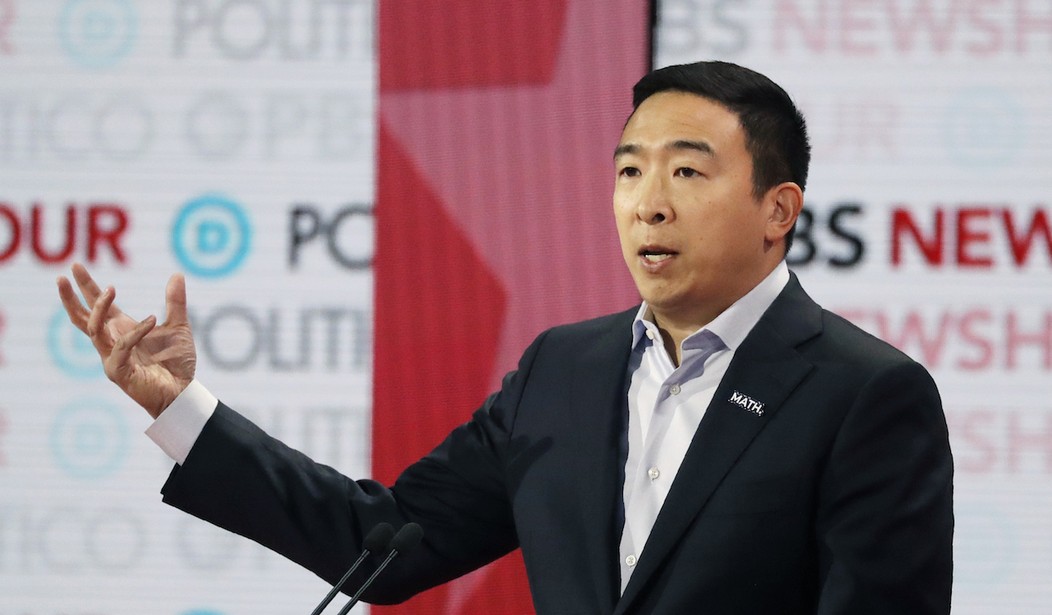Several dozen former Democrat and Republican officials from presidential administrations going back to Ronald Reagan have announced an effort to build a viable third political party.
The party, known as the Forward Party, will be well financed and organized. The party will be a conglomeration of three separate entities, including former Democratic presidential candidate and billionaire entrepreneur Andrew Yang’s Forward Party; the Renew America Movement, formed in 2021 by dozens of former officials from the Republican administrations of Ronald Reagan, George H.W. Bush, George W. Bush, and Donald Trump; and the Serve America Movement, a group of Democrats, Republicans and independents headed up by former congressman David Jolly.
Billed as a “centrist party,” the Forward Pary’s motto will be “How will we solve the big issues facing America? Not Left. Not Right. Forward.”
It is unclear how the new Forward party might impact either party’s electoral prospects in such a deeply polarized country. Political analysts are skeptical it can succeed.
Public reaction on Twitter was swift. Many Democrats on the social media platform expressed fear that the new party will siphon more votes away from Democrats, rather than Republicans, and end up helping Republicans in close races.
Forward aims to gain party registration and ballot access in 30 states by the end of 2023 and in all 50 states by late 2024, in time for the 2024 presidential and congressional elections. It aims to field candidates for local races, such as school boards and city councils, in state houses, the U.S. Congress and all the way up to the presidency.
It should be noted at the outset that the political system — the nuts and bolts that go into making the two parties work — is radically weighted against any attempt at creating a third party. Restrictions on getting a candidate’s name on the ballot in any capacity are deliberately made difficult. The two parties simply don’t want any competition.
Jolly points out that the extremist views of both parties don’t represent the positions of most Americans.
The two major parties have hollowed out the sensible center of our political system — even though that’s where most voters want to see them move. A new party must stake out the space in between. On every issue facing this nation — from the controversial to the mundane — we can find a reasonable approach most Americans agree on.
On guns, for instance, most Americans don’t agree with calls from the far left to confiscate all guns and repeal the Second Amendment, but they’re also rightfully worried by the far right’s insistence on eliminating gun laws. On climate change, most Americans don’t agree with calls from the far left to completely upend our economy and way of life, but they also reject the far right’s denial that there is even a problem. On abortion, most Americans don’t agree with the far left’s extreme views on late-term abortions, but they also are alarmed by the far right’s quest to make a woman’s choice a criminal offense.
If history is any guide, the Forward Party will be captured and absorbed by either the Democrats or Republicans. They would join a long line of illustrious — and not so illustrious — third political parties that were set up to compete with the Democrats and Republicans. The most successful third party was the Republican Party, which supplanted the Whig Party by 1856. But the two major third parties today — the Libertarians and Greens — have never broken through to even win one state during a presidential election and neither party currently has a federal lawmaker as a member.
At one time, the Socialist Party boasted strong political organizations across the country and elected two members to Congress. But after World War II, the Socialist Party had been captured by the Communists and quickly died out.
The Bull Moose Party, later the Progressive Party, also enjoyed some success until Teddy Roosevelt’s death. And Ross Perot’s Reform Party actually made some headway in reforming ballot procedures, but in 2020, its presidential candidate barely beat out the candidate of the Transhumanist Party.
Third party candidates also are at a disadvantage because of federal campaign finance laws, rules that dictate who can enter presidential debates, and a lack of media attention.
“It’s very difficult for third parties to get media coverage,” Bibby said. “In Nader’s last run, the questions they asked him “Why are you running?” (came) all the time, not about the substance of his campaign.”
Republicans and Democrats are going to fight tooth and nail to prevent the emergence of any rivals to their power. The problem is that the powers that be have to want to reform the ballot laws to make it easier for third-party candidates to run for office. Until someone forces them to open the process, the system will remain the way it is now.










